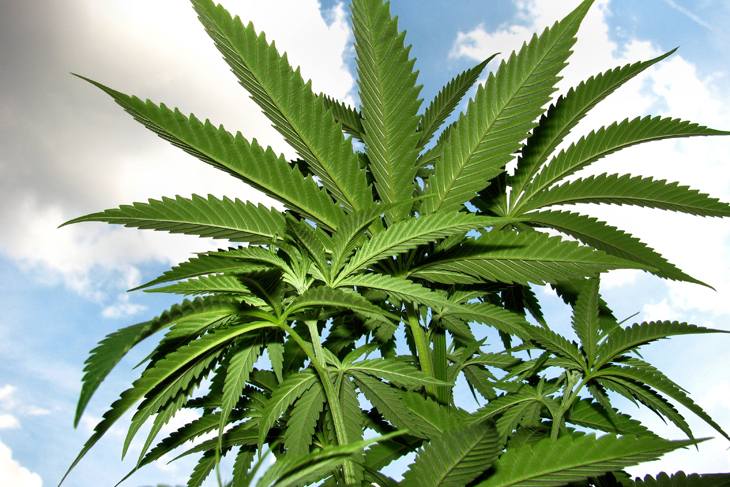We all know that medical marijuana is a wonderfully brilliant miracle treatment, but did you know that thanks to its effectiveness, it’s now seriously rivaling the popularity of modern day medicine in MMJ card states? While this doesn’t come as much of a surprise to medical marijuana card holders who have long been reaping the benefits of this super-plant, others are shocked at this news, and all because of their indoctrination into the allopathic school of thought.
Medical marijuana has recently gone through a renaissance, thanks to the advent of the medical marijuana card. Before this, MMJ had been subjected to a decade’s-long character assassination created by the proliferation of lies and misinformation during the ‘War on Drugs’. Before this dark period in MMJ history, marijuana had been used to treat all manner of ailments for hundreds of years.
Now that people are more open to the use of medical marijuana, they’re noticing the stark contrasts between using it and using more traditional modern medicines. If you were to do up a pros and cons list for each form of treatment, you’d soon see that the con list for using pharmaceutical treatments far outweighs that of using medical marijuana.
MMJ Reduces Side Effects and Health Complications

Unlike modern day medicines, which are known to cause serious side effects and complications, medical cannabis is not known to do either.
It’s no secret that some prescription painkillers come with nasty, life-restricting side effects. These side effects can be anything from chronic pain and depression to decreased libido. On the other hand, medical marijuana comes with no known severe side effects. A study conducted by Canadian scientists found that 215 MMJ card holders suffering from chronic pain “had no greater risk than non-users to experience serious adverse effects” after using the drug for one year. Most long-term MMJ card holders report no side effects following years of consumption.
Medical marijuana is not known to cause any serious health complications. Unfortunately, this is not the case for some modern medicines. Prescription medicines – especially opioid-based ones – can do serious damage to patients after prolonged use. A 2008 study based on life-threatening pharmaceutical side effects stated that opioid-based prescription drugs could cause “delayed gastric emptying, hyperalgesia, immunologic and hormonal dysfunction, muscle rigidity, and myoclonus”.
Not only are these side effects dangerous in their own right, but if they’re experienced for prolonged periods of time, they could facilitate the growth of tumors in the affected parts of the body. In particular, Pharma painkillers prescribed to relieve chronic pain in cancer patients have been observed to stimulate further tumor growth. In contrast, MMJ card holders who have been prescribed medical marijuana for cancer-associated pain have in some instances seen a reduction in the size of their tumors.
Medical Marijuana is Not as Addictive
As a lot of prescription painkillers are derived from the same source as heroin, they can be incredibly addictive. America consumes a staggering 75% of the world’s prescription drugs, and at least half of this number can be put down to addiction. Some doctors will freely prescribe these highly-addictive drugs to line their own pockets with money from Big Pharma so when people are prescribed these pills, it may not be within their own best interests.
Addiction to modern medications is exacerbated by the fact that your body starts to build up tolerance to them, meaning that you need to take more and more to get the same effect. Thankfully, the number of prescription medicine-related deaths have significantly reduced in the past number of years, with some people signaling that this is due to the introduction of medical cannabis cards.
By and large, medical marijuana is a non-addictive substance. While there are some cases of marijuana addiction, these are nearly entirely found within the recreational community. MMJ card carriers are aware of safe dosage levels, and even if they were to consume a little too much by accident, they’d be at risk of no more than feeling a little woozy for a couple of hours.

Since medical professionals have started issuing MMJ cards, the number of prescription medicine-related deaths have significantly reduced.
Of course, there are benefits to substituting modern medicine for medical marijuana altogether, but don’t put the idea of taking them concurrently off the table. For MMJ card holders on vital medication for a life-threatening illness, sometimes it simply isn’t an option for them to come off their prescription. In these cases, medical marijuana is often used as an additional form of treatment, to be taken alongside the original prescribed medication. Medical marijuana is taken by these patients in order to further lessen the symptoms of their ailment, or to lessen the harsh side effects that can come with taking some modern medications.
Pills taken to combat diseases like multiple sclerosis, Parkinson’s and Crohn’s disease can come with a whole host of nasty side effects that can leave patients incapacitated or in constant severe pain. Medical marijuana tackles these issues, thanks to its exceptional pain-relieving powers, as well as its ability to tackle other subsidiary symptoms like muscle spasms and lethargy. As medical marijuana comes with no side effects of its own, it’s perfectly safe to take it alongside traditional medicines.
We shouldn’t think of medical marijuana and modern medicine as a rivalry at all. MMJ is fast becoming an integral part of modern medicine, with doctors across the country prescribing it to medical cannabis holders for a whole range of medical conditions. When we start to look at MMJ as an addition to medicine, rather than a rival to it, we’re giving ourselves more options to choose from and thus, we expand our treatment horizons.
Some treatments don’t work for everybody, and that’s to be expected, but if we have as wide a range of treatment options as possible, more people will find the perfect treatment plan for them, easing their discomfort and enabling them to live better lives. If you want to explore your MMJ card options, get in touch with us today and we’ll see what’s available to you.
